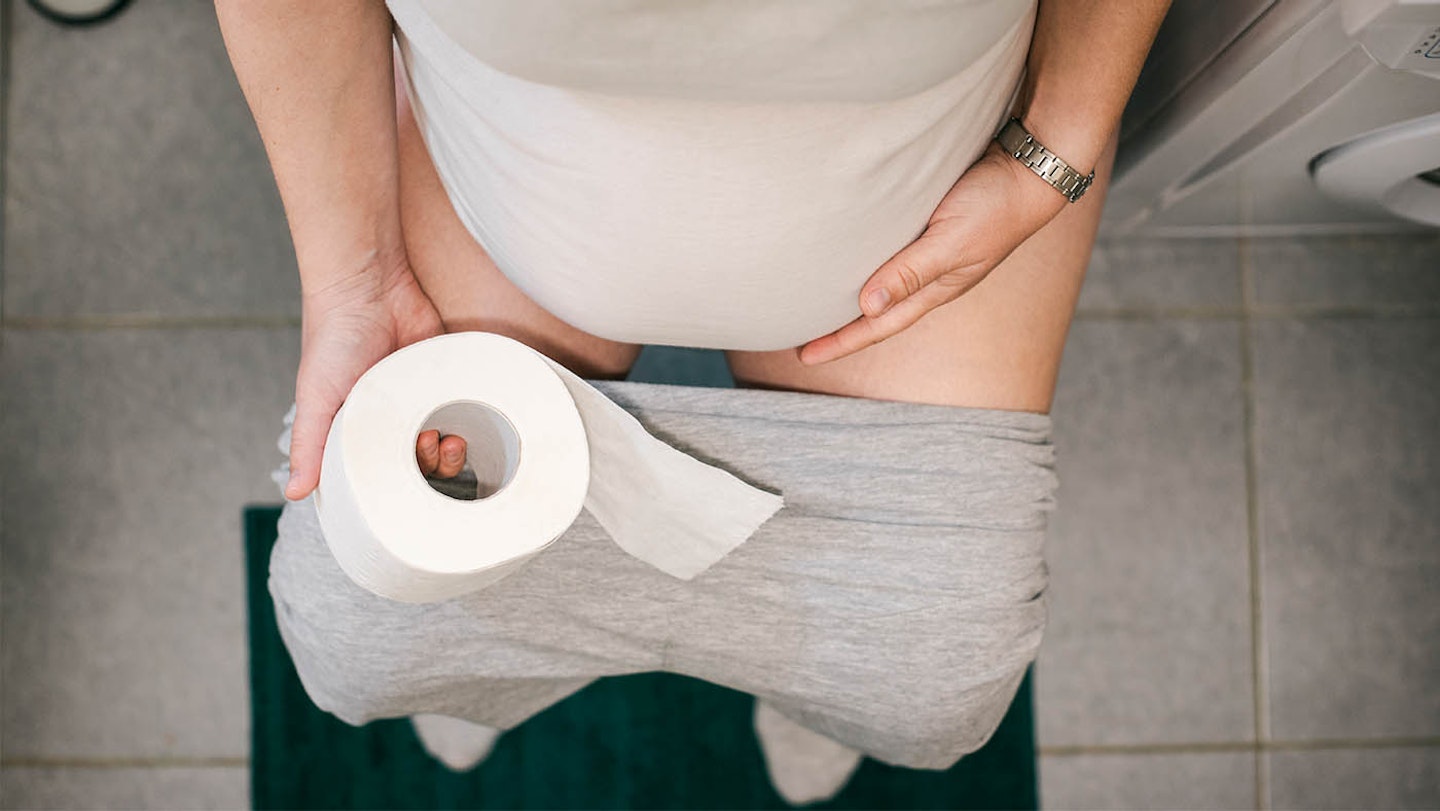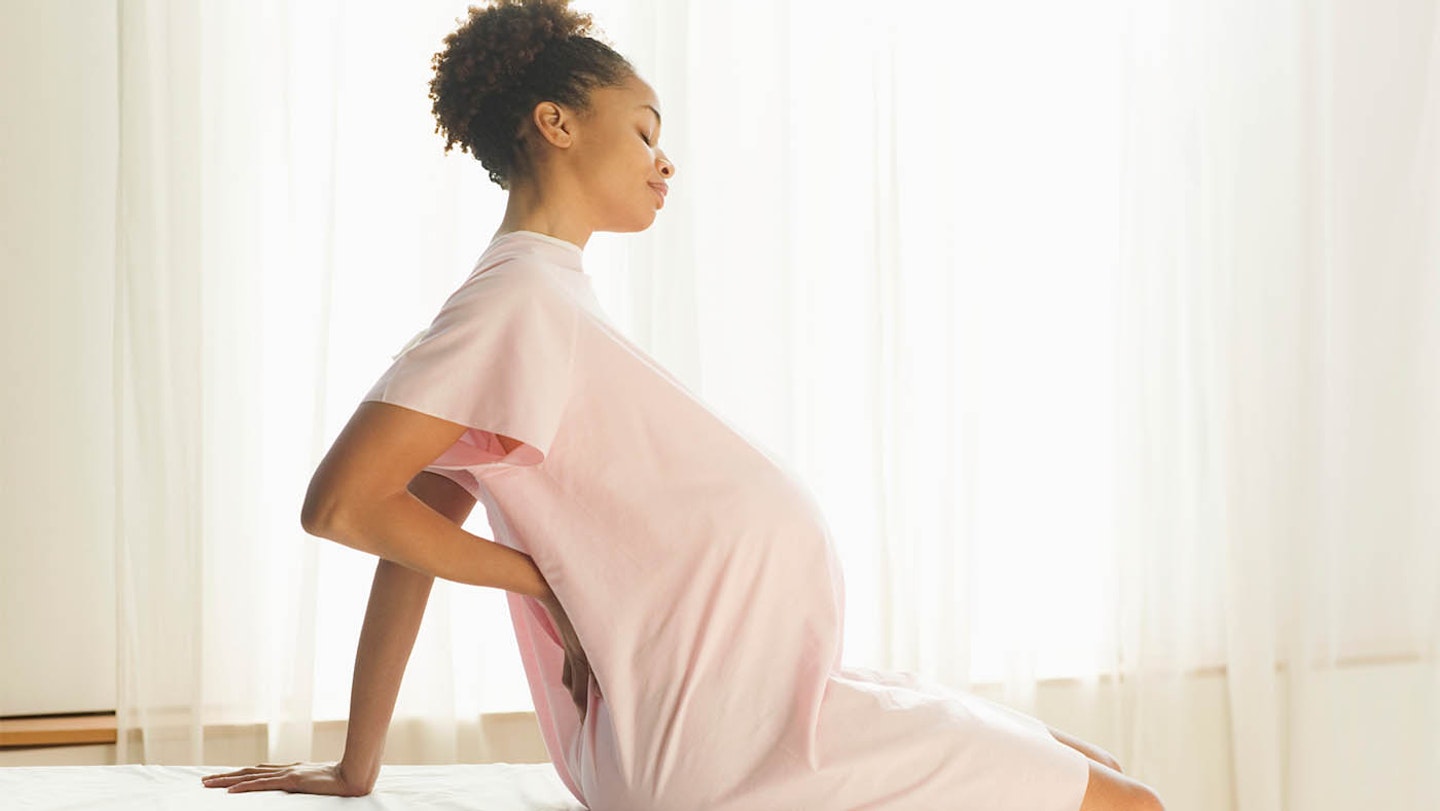You've stocked up on maternity pads and have been diligently doing your pelvic floor exercises. At 41 weeks pregnant you are considered overdue and your baby should be making their appearance any day now, although some women do reach 42 weeks pregnant. Find out what's going on with your baby and body in these final days of your pregnancy.
How big is my baby at 41 weeks pregnant?
Your baby will now weigh up to nine pounds and be between 19 and 22 inches from top to toe. Although they are loving life inside your womb, they can’t stay in there forever. Don’t fret, you’ll soon be a mum and get to meet the little person who’s been growing inside you for nine (nearly ten!) months. Also, keep in mind that many babies aren’t actually overdue at all: there was just a miscalculation with predicting the due date.
What’s my baby doing at 41 weeks pregnant?
In the week or two before your baby's due date, they will start shedding the greasy, white substance, which has been protecting their skin, called vernix. This turns the amniotic fluid, which was once clear, pale and milky.
Overdue babies can be slightly larger than other babies as they’ve had longer to grow and their skull bones have had longer to fuse together. Both these things mean you have a slightly higher chance of having an assisted delivery with forceps or ventouse.

For safety reasons, your doctor or midwife will soon discuss inducing labour with you if your baby isn’t born in the next few days. Most doctors won’t allow mothers to wait more than two weeks past their due date to give birth, as it puts both mother and baby at risk of complications, such as prolonged or stalled labour, injury during vaginal delivery or stillbirth.
It’s also a stressful time for your baby. Research suggests that your baby will actually send hormones to the placenta to trigger labour to begin. During childbirth, your baby will produce more stress hormones than at any other time in their life, but don’t worry: these hormones will help their survival instincts kick in as they get used to the big wide world outside your womb. Once they are born, they will also take the most important breath of their life, which will inflate the tiny air sacs in their lungs so that they can expand to help them breathe for a lifetime.
Common symptoms to look out for
 1 of 6
1 of 61) Labour contractions
You’ll probably notice them as soon as they arrive (ouch!) but here’s what you should expect. Your water might break, you might notice a bloody show, or mucous plug, just before labour begins, and then you’ll feel contractions, which can be quick and sudden for some women and slow and steady for others.
They will normally start further apart and get more regular and close together. The symptoms will vary from woman to woman: many expectant mums feel symptoms like menstrual cramps, backaches, or pain only in the front of the body. If you’re not sure you’re experiencing contractions, call your doctor or midwife to explain what’s going on, and they’ll be able to tell you whether they are real contractions or Braxton Hicks.
 2 of 6
2 of 62) Diarrhoea
Though it might be unpleasant, the onset of diarrhoea may be a positive sign, as it often means that the baby is on her way thanks to your muscles (including those in your rectum and intestine) are getting looser as you get closer to labour.
 3 of 6
3 of 63) Pelvic pain
If you’re experiencing pelvic pain, this is likely because of your baby dropping down towards the birth canal and putting more pressure on the bones, muscles and joints in your pelvis and back. Try to lie back with your hips elevated for some comfort and relief, or take a warm bath to defy gravity for a little while. You could also try a belly sling or a prenatal massage.
 4 of 6
4 of 64) Haemorrhoids
Pelvic pressure pushing down into your bottom can cause varicose veins which then cause haemorrhoids, also known as piles. These aren't comfortable and will probably get worse when you push your little one out. The swelling and pain should die down after the labour.
 5 of 6
5 of 65) Frequent urination
We're not sure we can really count peeing a lot as a symptom anymore because you have probably had this right from day one! Your baby is sitting right on top of your bladder in preparation for the birth so that's what is to blame (you won't want to blame them when you see their adorable face super soon!).
 6 of 6
6 of 66) Difficulty sleeping
Your hormones are still all over the place and your nerves about the big day will be making it hard to sleep. This is completely understandable and normal. Sadly, once your baby is born you probably won't get much more shut-eye. Just think of this as practice. As you'll probably be on maternity leave by now, if you feel sleepy at any point even if it is during the day - seize the opportunity for a nap!
What is my body doing at 41 weeks?
Once you reach 41 weeks, your midwife will do checks at the hospital, which may include an ultrasound scan to make sure your baby is still growing properly. Your baby will also be monitored every few days to check that their heartbeat and movements are normal.
Your midwife may offer to do a membrane or cervical sweep as it can increase the chance of labour starting within 48 hours. This is when she sweeps a finger around your cervix to separate the membranes of the amniotic sac that your baby is in from your cervix. This releases hormones (prostaglandins) which could trigger labour within 48 hours.
Sometimes your midwife won’t be able to reach the amniotic sac and instead will stretch and massage the cervix. This can start the ripening of your cervix and will make it easier for your midwife to do a proper sweep the next time she sees you.
A membrane sweep can be a little uncomfortable, as the cervix is often difficult to reach before your labour begins. Try doing some deep breathing exercises to help you to relax while your midwife is carrying out the sweep. The procedure shouldn’t take too long and with any luck, things will start happening, although you may need it done more than once.
In the meantime, keep your eyes peeled for any fluids leaking from your vagina, or if you notice any slowing of your baby’s movements. If either of these happens, you’ll need to call your doctor or midwife immediately.
What to do this week:
Feeling bored? We don’t blame you! By this point, you’ll probably be fed up with being pregnant and desperate for your baby to just hurry up and arrive! There's nothing thrilling about being constantly asked when the baby is going to arrive and going to the loo 15 times a day.
If you’re overdue and are completely prepared (have you doubled checked your hospital bag checklist, stocked your fridge and freezer and practised fitting your car seat?), the best thing you can do is rest. Settle down with your favourite DVD boxset or book and make the most of the peace and quiet.
